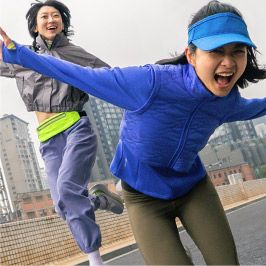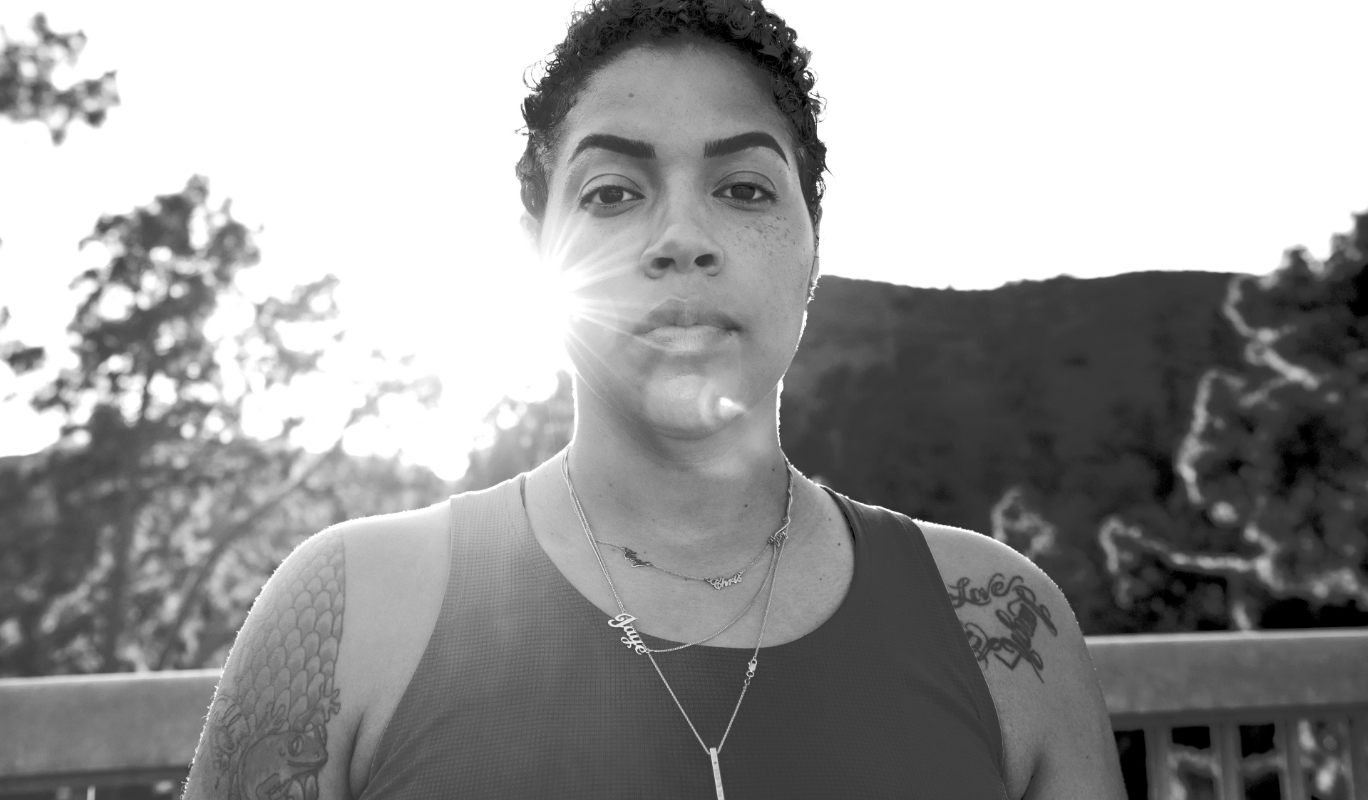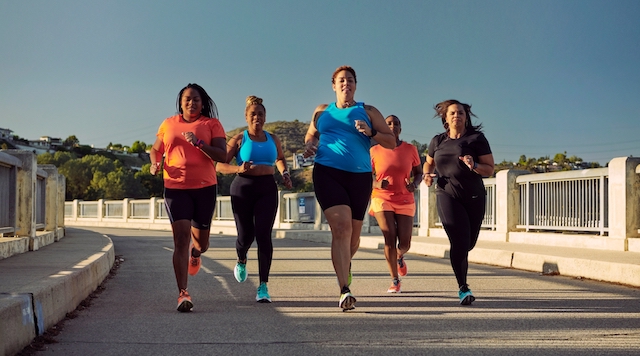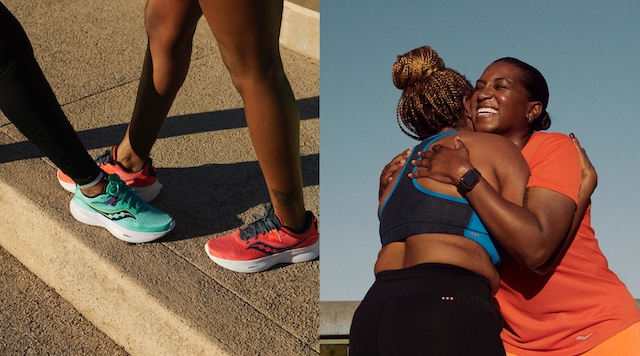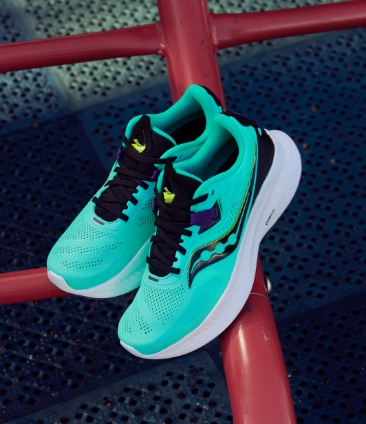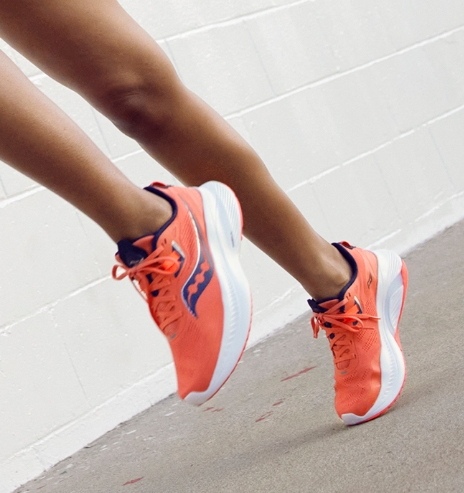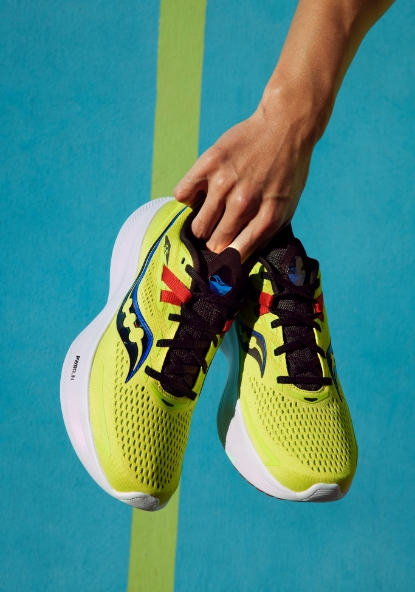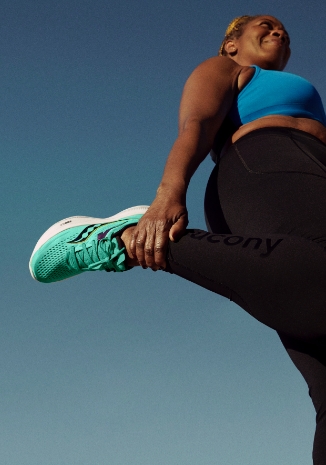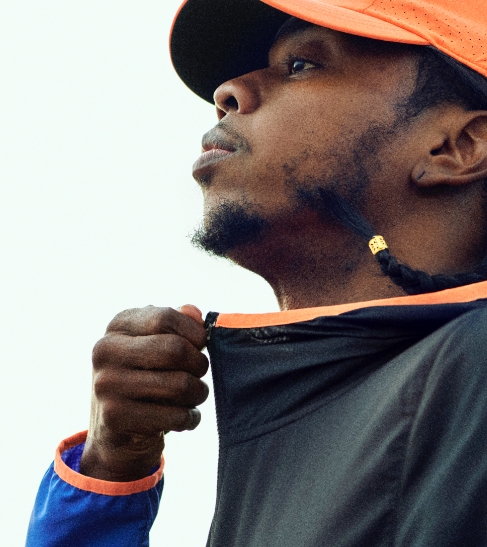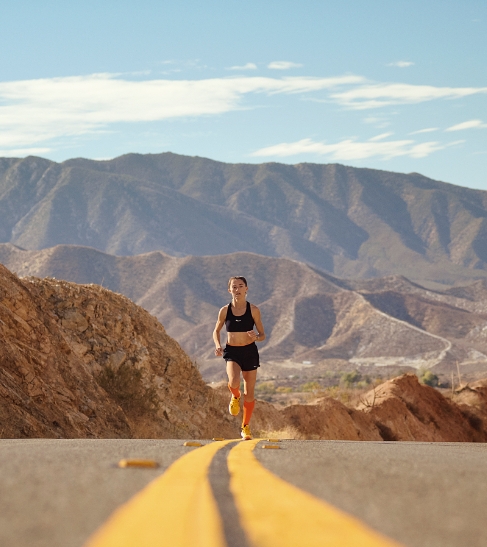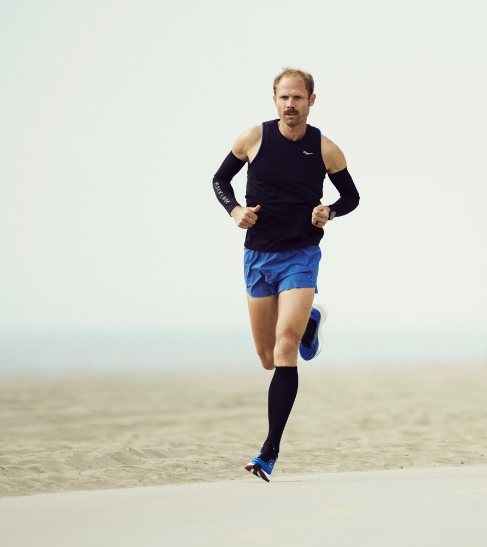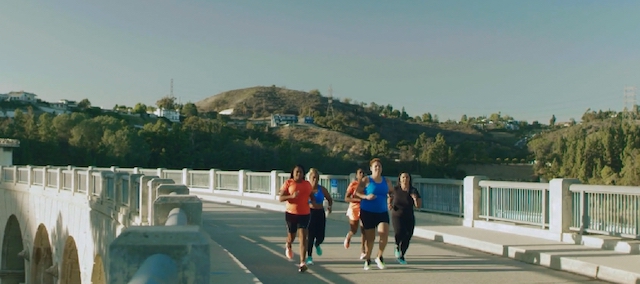
JAY ELL ALEXANDER CEO. Mother. Community activist. Runner.
The CEO baton was passed to Jay Ell Alexander after a decade of interning, leading group runs, and spearheading communications & marketing programs for Black Girls Run. Read on for Jay Ell's fitness journey, vision for BGR, multi-faceted life as a mother and businesswoman, and how she balances it all.
Q: How would you describe yourself as an athlete, a human, a professional, etc? A: I am a full time entrepreneur. And so along with Black Girls Run, I also have a PR firm and then also manage our foundation as well. But up until about 9:30 every morning, I am a full time mom.
Q: You wear a lot of hats - how do you turn it off when you get out for a run? Is this a common thread you see with the women you run with? A: What plays in my mind every time I think about this is what I experience when I pull up to a group run. You know, you can hear people's husbands on Bluetooth or you can hear a business call happening. We have so much chaos in our lives that we have to take this moment to invest in ourselves. All of these women are driving to this one location to come running but in the midst of driving to this one location, they're dealing with the chaos of at-home, or at work. But when they get to the run and put their car in park, all of that turns off and they're able to focus on themselves, go out on the run, casually, talk about life and enjoy the run. Prior to the run, it's like, "I'm not a runner." But then when we get out to that run, we are definitely so much of a runner. And just for that 30 minute run, we're able to turn off the noise.
Q: Can you talk about your first experience with Black Girls Run as an intern? A: I had just graduated from graduate school and met my now husband and I put on weight. I was experiencing headaches and high blood pressure in my early 20s. I signed up for a 10k in Richmond, VA and in that same year - as I got interested in running — a colleague introduced me to Black Girls Run. They were needing some media support and I was needing some hands-on work coming out of graduate school. Marrying the two just literally turned into probably one of the best decisions that I've made. They flew me to New York where I slept head to toe with women I had just met for the first time, in a studio apartment. It was like serendipity. We hit it off immediately and they became like big sisters. That was a decade ago, and I just fell in love with them, the organization. I just was soaking it all up not realizing that I was kind of planning these seeds to one day be in an ownership role of the company.
You don't have to define yourself by a particular pace or being a particular size — you have so much more to bring to the table.
Q: What was it like leading your first run group as an ambassador and now that you're the CEO, do you feel a shift in how often you're spending time for you in the Black Girls Run community? A: I started the running group here in Richmond almost a decade ago - we were training for our first half marathon. Everybody was so excited and it was just a matter of just coming together. We had never seen this many black people or black women, I should say, in one place, training for a long distance endurance race. So people were really excited. It was something super amazing - and I'm still running with the same crew that I started with back in 2012. That role has definitely shifted. But with age also comes maturity. So if I was in this role at 23 years old, I probably would not be focusing on myself at all. But now that I have a husband at home and a child at home, I understand that everything has to live in harmony. Wife or mother never turns off. But sometimes you just have to put things on pause. Putting myself first is the only way that I'm able to serve my community 100 percent. If I'm not feeling well or if I'm not feeling up to speed, then I can't serve the community like I should. So I have to be very intentional about making sure that I'm filling my cup first.
Q: What does success look like for you when it comes to BGR? What are those boxes that you want to tick off, the metrics or milestones you want to meet? A: The mission is definitely ongoing. These chronic diseases [that we are fighting and raising awareness for] didn't happen in our community overnight, and they're not going to be corrected overnight, either. On the flip side, it's also looking at the research behind what's so important about these communities that they continue to drive women out to be active. So we've been a part of research studies just to look at women's mindsets of how "community" holds them much more accountable with their health and fitness goals. Diversity and inclusion work is a huge thing right now, so a lot of races have reached out to us. Over the last decade or so, race organizers haven't really cared who signed up for races but are beginning to be more intentional in having diversity on the pavement.
SHOP Jay Ell & The Black Girls Run Members' FAVORITES
Find support and stability in Saucony's latest Ride 15 and Guide 15, as seen on the women of Black Girls Run.
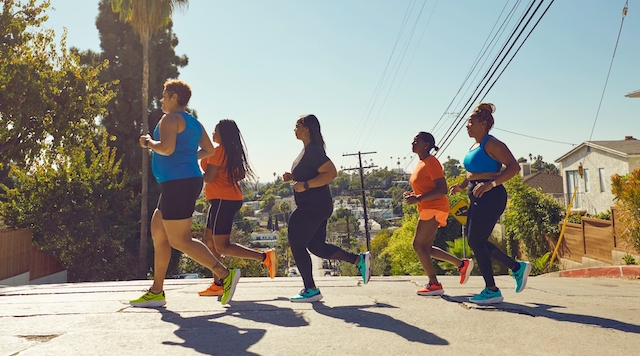
Sometimes you have to put things on pause. Putting myself first is the only way that I'm able to serve my community 100 percent.
Q: You partnered with a well known trail race organizer to increase diversity in that arena. Is that a key pillar for BGR and what are some others? A: That trail running is a whole different beast. It's the idea of just being in the woods, running at night, overnight in the dark by yourself. It's a whole mental thing. One of our high level pillars is definitely accessibility. Through our training programs, we've been partnering women with access to run coaching, physical therapists as well as nutritionists. So that's kind of a pillar in terms of having access to the right resources through our training program. So there's an education component to it as well. If you're going to run, then you definitely need to do it right in terms of injury prevention. And lastly, the awareness piece- this is a sport that should be open and accessible to all of us. The black girls run community is steering that ship to make sure that women are aware of that. So awareness, education and then providing those accessible resources - those are probably our top three pillars.
Q: What does it mean to be labeled as a runner - in general how do you feel about this new Saucony campaign? A: When people hear black girls run, especially a newbie, they're immediately intimidated. They think they already have to be a runner or they have to run a certain pace or, you know, they have to be a certain size. And we have to kind of immediately break down those barriers, saying no, come come as you are, we meet you where you are. We have women of all paces, sizes, ages, and we have to explain that from the beginning. You know, I am a mom, I'm an entrepreneur, I'm a best friend. But being a runner helps me to kind of be better in all of those positions or those roles as well. So when people hear, No, I'm not a runner. Well, no, actually, you are. But you are so much more as well, and you don't have to define yourself by a particular pace or being a particular size because you have so much more to bring to the table. The campaign helps level the playing field. ■
About Black Girls RUN!
The goal of "Black Girls Run" is to encourage and motivate black women to practice a healthy lifestyle. BGR! wants to create a movement to lower the number of women with chronic diseases associated with an unhealthy diet and sedentary lifestyle. Follow them on Instagram at @blackgirlsrun and visit blackgirlsrun.com to join a local group.




